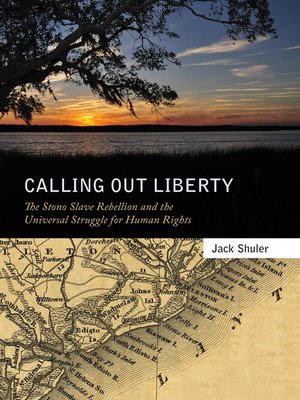Calling Out Liberty
ebook ∣ The Stono Slave Rebellion and the Universal Struggle for Human Rights
By Jack Shuler

Sign up to save your library
With an OverDrive account, you can save your favorite libraries for at-a-glance information about availability. Find out more about OverDrive accounts.
Find this title in Libby, the library reading app by OverDrive.



Search for a digital library with this title
Title found at these libraries:
| Library Name | Distance |
|---|---|
| Loading... |
The Stono Rebellion serves as a touchstone for Calling Out Liberty, an exploration of human rights in early America. Expanding upon historical analyses of this rebellion, Jack Shuler suggests a relationship between the Stono rebels and human rights discourse in early American literature. Though human rights scholars and policy makers usually offer the European Enlightenment as the source of contemporary ideas about human rights, this book repositions the sources of these important and often challenged American ideals.







